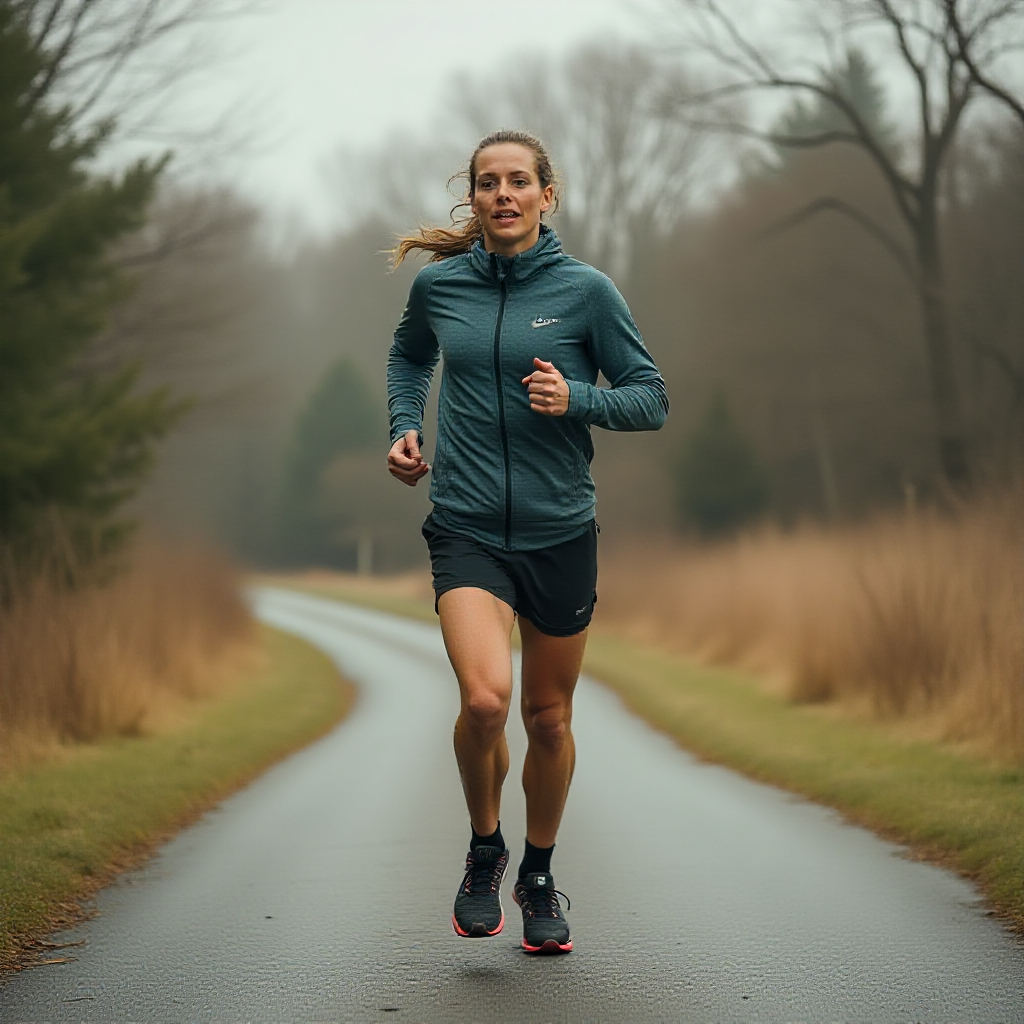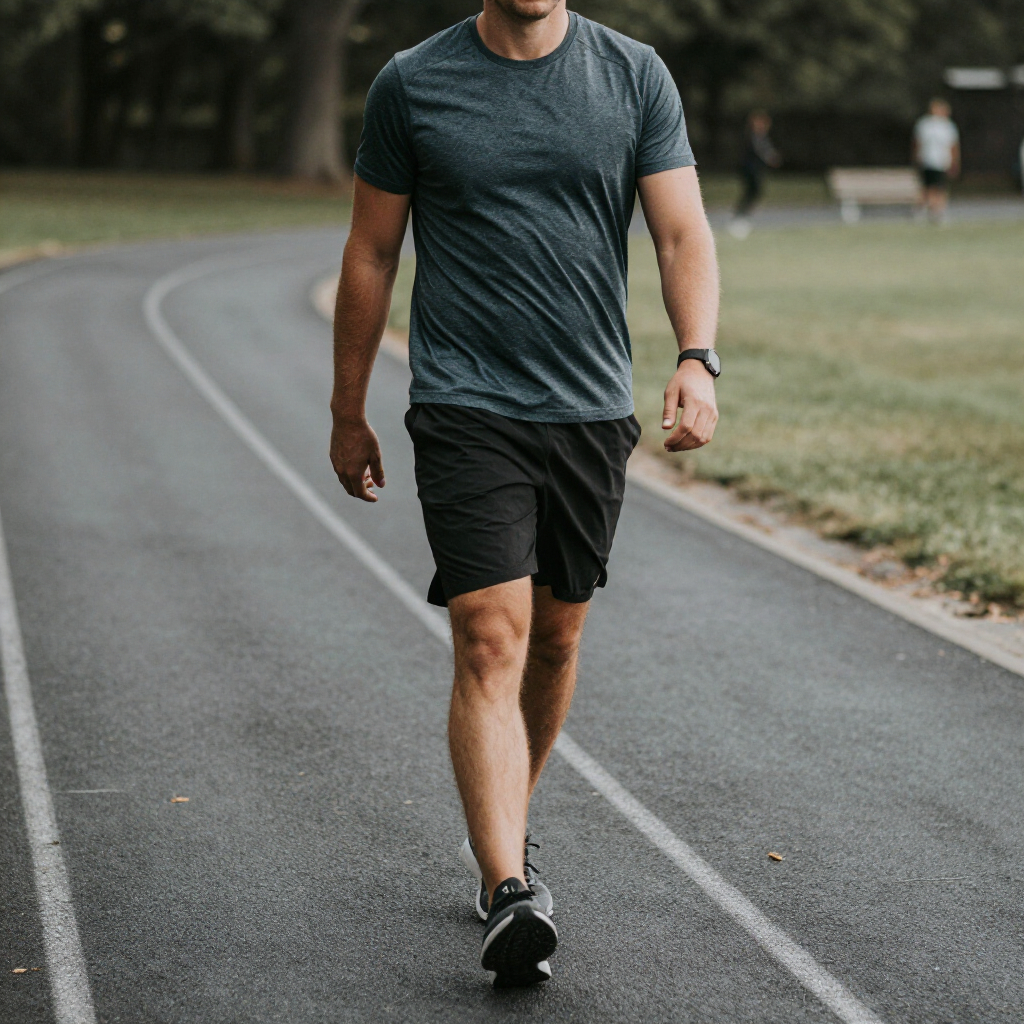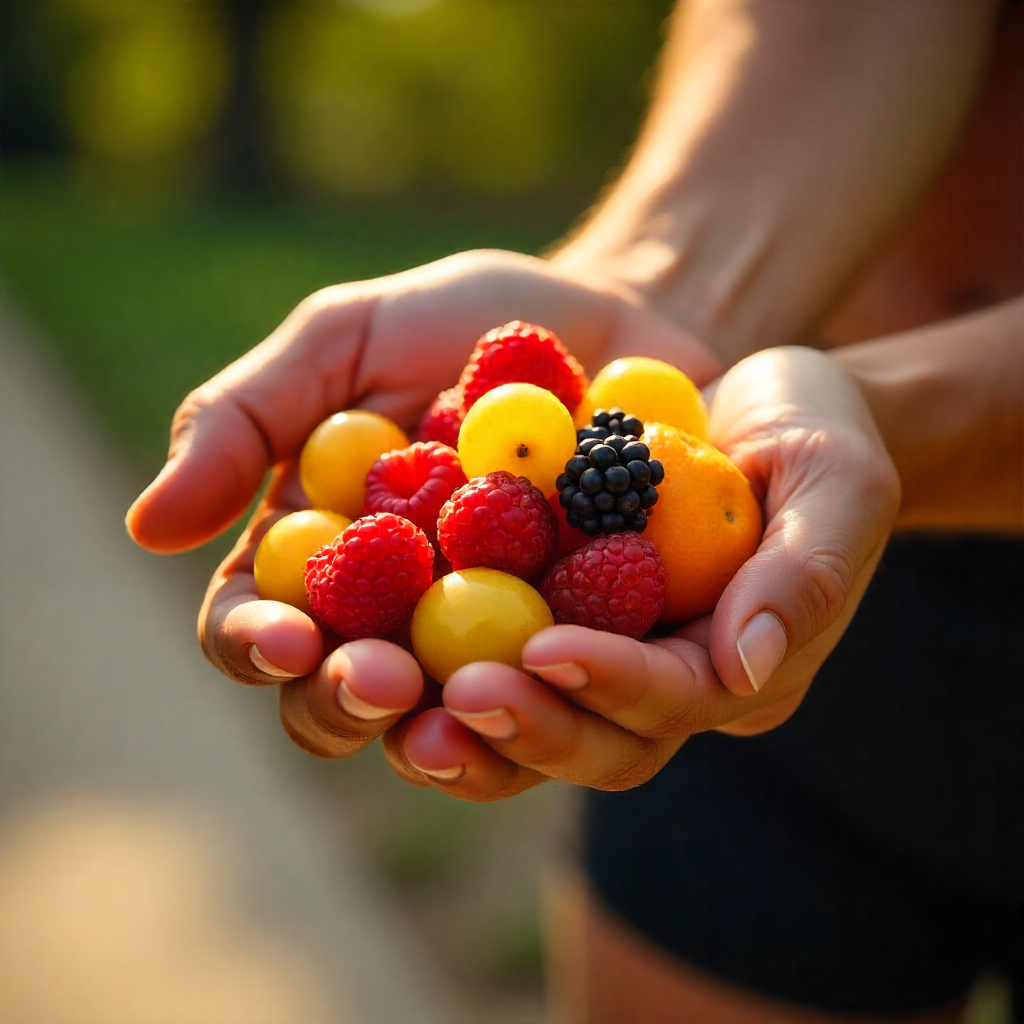Modern sports science has revealed that long-term health and athletic performance are deeply connected. While training builds strength and endurance, it also produces oxidative stress, an imbalance between free radicals and antioxidants in the body.
Left unchecked, this oxidative stress can accelerate aging, weaken immunity, and increase the risk of chronic diseases such as heart disease, diabetes, and arthritis.
This is where antioxidant-rich fruits come in. Packed with vitamins, flavonoids, and polyphenols, these natural foods act as a shield against cellular damage while also supporting recovery, mental clarity, and long-term vitality.
In this blog, we’ll explore the science behind antioxidants, highlight the top fruits that deliver them, and share real case studies on their impact.
Why Antioxidants Are Crucial for Athletes and Active Lifestyles
- Combat Free Radicals: Exercise increases oxygen consumption, which produces free radicals. Without antioxidants, these unstable molecules can damage muscle tissue and DNA.
- Reduce Inflammation: Chronic low-grade inflammation contributes to joint stiffness, fatigue, and slower recovery. Antioxidants neutralize inflammation at the cellular level.
- Support Immunity: Hard training can temporarily weaken the immune system. Antioxidants like Vitamin C and E strengthen defenses.
- Prevent Chronic Diseases: Diets rich in antioxidants lower risks of cardiovascular disease, type 2 diabetes, and neurodegenerative disorders, conditions that shorten both healthspan and athletic careers.
Top Antioxidant Fruits for Longevity and Disease Prevention
1. Blueberries – The Oxidative Stress Buster
- Key Compounds: Anthocyanins, flavonoids, Vitamin C.
- Benefits: Improves memory and cognition, reduces exercise-induced oxidative stress, and strengthens immunity.
- Best Use: Add to morning oatmeal, post-workout smoothies, or eat fresh as a snack.
- Research Insight: A 2019 study in Frontiers in Nutrition found blueberry supplementation improved exercise recovery and reduced inflammation markers in endurance athletes.
2. Pomegranates – Heart and Joint Protector
- Key Compounds: Polyphenols, ellagic acid, punicalagins.
- Benefits: Reduces oxidative stress in blood vessels, lowers blood pressure, and protects cartilage.
- Best Use: Fresh juice post-workout or sprinkle seeds on salads.
- Research Insight: A 2017 review in Nutrients concluded that pomegranate polyphenols significantly improved cardiovascular markers in both athletes and non-athletes.
3. Grapes – The Resveratrol Powerhouse
- Key Compounds: Resveratrol, quercetin, flavonoids.
- Benefits: Enhances blood circulation, slows cartilage breakdown, supports longevity.
- Best Use: Fresh grapes as snacks, or natural grape juice after training.
- Research Insight: A 2012 study in the Journal of Nutritional Biochemistry showed resveratrol supplementation reduced cartilage damage and inflammation in osteoarthritis models.
4. Strawberries – Immune & Skin Defender
- Key Compounds: Vitamin C, ellagic acid, flavonoids.
- Benefits: Supports collagen production (skin and joints), reduces inflammation, boosts immune defense.
- Best Use: Fresh strawberries after workouts or blended in recovery shakes.
- Research Insight: A 2016 study in Food & Function found regular strawberry intake lowered oxidative stress markers and improved vascular health.
5. Acai Berries – The Exotic Superfruit
- Key Compounds: Anthocyanins, Vitamin A, Vitamin E.
- Benefits: Strong anti-aging effects, supports brain health, and reduces muscle fatigue.
- Best Use: Acai bowls or powdered acai in smoothies.
- Research Insight: A 2011 study in the Journal of Agricultural and Food Chemistry found acai pulp significantly reduced oxidative stress and improved vascular function in athletes.
6. Oranges – Vitamin C Shield
- Key Compounds: Vitamin C, flavanones.
- Benefits: Boosts immunity, supports collagen synthesis, reduces cortisol (stress hormone).
- Best Use: Fresh orange or juice pre- or post-training.
- Research Insight: A 2015 study in Frontiers in Physiology confirmed that Vitamin C supplementation lowered oxidative stress markers in endurance athletes.
Also Read the Latest: Why Timing Proteins, Carbs & Fats Matters for Your Health
Case Studies
Case Study 1: Blueberries for Faster Muscle Recovery
A 2012 clinical trial published in the Journal of the International Society of Sports Nutrition examined the effects of blueberry smoothies on recovery in long-distance runners. Participants consumed the smoothies both before and after intensive exercise.
Results showed significantly faster recovery of muscle strength and reduced inflammation markers, such as C-reactive protein, compared to the placebo group. Researchers concluded that the antioxidant-rich compounds in blueberries, particularly anthocyanins, help mitigate exercise-induced muscle damage and accelerate recovery.
🔗 Read the study here
Case Study 2: Pomegranate Juice and Cardiovascular Health
A 2010 study conducted by the American Journal of Clinical Nutrition analyzed endurance athletes who drank 500 ml of pomegranate juice daily for two weeks. The findings revealed a noticeable reduction in oxidative stress and inflammation, along with improved blood flow and endurance performance during high-intensity cycling.
The high concentration of polyphenols in pomegranate juice was found to enhance nitric oxide bioavailability, which supports cardiovascular efficiency and overall stamina.
🔗 View full study
Case Study 3: Real-Life Story – Sarah Mitchell, Physiotherapist & Marathon Runner
Sarah Mitchell, a 35-year-old physiotherapist and recreational marathon runner from Denver, Colorado, struggled with chronic knee pain and delayed recovery after long runs. Following her sports nutritionist’s advice, she incorporated daily servings of tart cherry juice and pineapple smoothies into her diet.
Within six weeks, Sarah reported less inflammation, improved post-run recovery, and reduced joint stiffness. Her experience aligns with findings from numerous studies showing that anthocyanins in cherries and bromelain in pineapple help manage inflammation and promote muscle healing. Sarah’s success inspired her to start a small fitness blog sharing natural recovery tips for athletes.
Share Your Story with Active Health Sport
At Active Health Sport, we believe personal stories drive real inspiration. If you’ve experienced healing or performance benefits from nutrient-rich fruits or natural recovery methods, we’d love to hear from you!
Share your journey with our team, and you might be featured in our next community spotlight or blog feature. Your story could inspire others to discover the healing power of nature’s foods.
Also Read the Latest: How Eating the Right Breakfast Can Change Your Whole Day
Nutrition Comparison Table: Antioxidant Power in Fruits
| Fruit | ORAC Value (antioxidant score per 100g) | Key Nutrients | Main Benefit |
| Blueberries | 9,621 | Anthocyanins, Vit C | Recovery, cognition |
| Pomegranate | 2,341 | Polyphenols | Heart & joint protection |
| Grapes | 1,837 | Resveratrol | Longevity, joint health |
| Strawberries | 4,302 | Vit C, flavonoids | Immunity, collagen support |
| Acai Berries | 15,405 | Anthocyanins, Vit A | Anti-aging, endurance |
| Oranges | 2,103 | Vitamin C | Immunity, stress reduction |
Long-Term Benefits of Antioxidant Fruits
1. Reduced Risk of Chronic Illness
Oxidative stress occurs when free radicals, unstable molecules formed during metabolism and exercise, overwhelm the body’s antioxidant defenses. Over time, unchecked oxidative stress damages DNA, proteins, and lipids, contributing to chronic illnesses such as:
- Cardiovascular disease (CVD): Free radicals oxidize LDL cholesterol, promoting plaque buildup in arteries.
- Type 2 Diabetes: Oxidative damage impairs insulin sensitivity and pancreatic beta-cell function.
- Arthritis and Joint Disorders: Inflammation combined with oxidative damage accelerates cartilage breakdown.
How Antioxidant Fruits Help
Antioxidant-rich fruits act as nutritional shields, neutralizing free radicals and reducing inflammation before disease processes can take root.
- Polyphenols in pomegranate, grapes, and blueberries lower blood pressure and improve vascular flexibility.
- Vitamin C in oranges, kiwi, and strawberries protects arteries from oxidative damage and boosts collagen for joint support.
- Anthocyanins in blueberries and blackberries improve insulin sensitivity, lowering diabetes risk.
Case Example: Pomegranates and Heart Health
A 2004 clinical study published in Clinical Nutrition found that patients with carotid artery stenosis who consumed pomegranate juice daily for a year showed a 30% reduction in arterial plaque thickness, compared to worsening conditions in the control group.
Practical Integration
- A morning smoothie with blueberries, kiwi, and spinach boosts antioxidant and anti-inflammatory defenses.
- Post-workout orange juice replenishes Vitamin C and reduces cortisol, lowering cardiovascular stress.
- Regular grape consumption supports endothelial (blood vessel lining) function, reducing CVD risk long-term.
2. Athletic Longevity
Athletes push their bodies to extremes, producing far more oxidative stress than sedentary individuals. Over time, this contributes to:
- Muscle fatigue and reduced endurance.
- Microtears in ligaments and tendons.
- Accelerated aging of joints.
Athletic careers are often cut short not by skill but by injury, chronic inflammation, or exhaustion. Supporting the body with antioxidant fruits ensures extended years of peak performance.
Key Fruits for Athletic Longevity
- Blueberries & Acai Berries: Combat muscle fatigue by reducing oxidative stress from high-intensity training.
- Watermelon: Rich in citrulline, improving blood flow and reducing exercise-induced soreness.
- Pineapple: Bromelain speeds recovery and lowers injury downtime.
- Bananas: High in potassium, preventing cramps and supporting consistent muscle contractions.
Research Spotlight: Blueberries and Recovery
A 2012 Journal of the International Society of Sports Nutrition study showed that athletes who consumed blueberry smoothies recovered significantly faster from strength training compared to controls. This allowed them to sustain higher training volumes with less downtime.
Practical Strategies
- Include antioxidant fruits pre-workout (bananas, oranges) for energy and nutrient priming.
- Consume blueberries, cherries, or grapes post-exercise for inflammation control.
- Regular daily fruit intake supports tendon and joint integrity, extending athletic performance over decades.
Also Read the Latest: Here’s Why Water-Rich Fruits Are Essential for Hydration
3. Mental Clarity
The brain consumes nearly 20% of the body’s oxygen, making it especially vulnerable to oxidative stress. Free radicals damage neurons and impair neurotransmitter signaling, leading to:
- Memory decline
- Slower reaction times
- Poor decision-making is a critical factor in sports and daily life.
Antioxidant Fruits and Cognitive Health
- Blueberries: Improve short- and long-term memory by boosting hippocampal function.
- Grapes (resveratrol): Improve blood flow to the brain, enhancing focus and decision-making.
- Oranges and Kiwi: High Vitamin C reduces oxidative stress in neurons, protecting against age-related decline.
- Acai Berries: Rich in anthocyanins that improve neuroplasticity (the brain’s ability to adapt and learn).
Research Example: Blueberries and Cognitive Performance
A 2010 University of Cincinnati trial found that older adults who drank blueberry juice daily for 12 weeks showed improved memory and learning ability compared to the placebo group.
Application for Athletes
Mental sharpness is as important as physical power in competitive sports. Quick decisions, strategic planning, and mental endurance often define winners. Regular antioxidant fruit intake ensures the brain stays resilient under stress, travel fatigue, and intense competition.
4. Slower Aging
Aging is accelerated by oxidative damage to DNA, proteins, and cell membranes. This manifests as:
- Wrinkles and skin damage.
- Reduced muscle elasticity.
- Joint degeneration (osteoarthritis).
- Weakened immunity and slower recovery.
Fruits as Anti-Aging Allies
- Pomegranates: Contain ellagitannins, which convert to urolithin A, a compound linked to mitochondrial health and longevity.
- Grapes (resveratrol): Activates sirtuins, proteins associated with DNA repair and slower aging.
- Strawberries & Kiwi: Vitamin C supports collagen synthesis, reducing skin wrinkles and maintaining joint flexibility.
- Acai & Blueberries: Prevent telomere shortening, a key biomarker of cellular aging.
Research Highlight: Resveratrol and Lifespan
A 2006 Harvard Medical School study found that resveratrol extended the lifespan of mice on a high-fat diet by activating sirtuins and improving mitochondrial efficiency, a promising mechanism for human longevity.
Here are the practical takeaways
- Daily inclusion of antioxidant fruits slows visible signs of aging (skin, hair, energy).
- Supports healthy aging by protecting joints, heart, brain, and muscles from early decline.
Creates a nutritional buffer against age-related diseases, extending both lifespan and healthspan.
Frequently Asked Questions (FAQs)
Why are antioxidant-rich fruits better than supplements?
Antioxidant-rich fruits are superior to supplements because they offer a full matrix of nutrients, fiber, polyphenols, vitamins, and enzymes that work synergistically. Unlike isolated supplement compounds, whole fruits enhance absorption and deliver balanced anti-inflammatory and recovery benefits.
How many antioxidant fruits should athletes eat daily?
Athletes should aim for 2–3 servings of antioxidant-dense fruits every day. Including a colorful mix, like berries, cherries, and pomegranates, provides a broader range of phytonutrients that support muscle repair, reduce oxidative stress, and sustain energy levels.
Can antioxidants improve endurance performance?
Yes. Clinical studies show that antioxidants lower muscle fatigue and oxidative stress, allowing athletes to perform longer and recover faster. Regular consumption of fruits rich in vitamin C, anthocyanins, and polyphenols can improve oxygen efficiency and reduce muscle soreness after endurance events.
Do antioxidant fruits help with aging joints?
Absolutely. Fruits containing resveratrol, flavonoids, and anthocyanins (like grapes and blueberries) help maintain cartilage health, reduce inflammation, and slow joint degradation associated with aging, promoting long-term joint flexibility and mobility.
Is fruit juice as effective as whole fruit?
Fresh fruit juices deliver concentrated antioxidants that boost recovery and hydration, but often lack essential fiber. Whole fruits, on the other hand, support better digestion and sustained nutrient release, making them ideal for daily nutrition and gut health.
When is the best time to eat antioxidant-rich fruits for recovery?
The best time to eat antioxidant-rich fruits is within 30-60 minutes after a workout. During this “recovery window,” your body absorbs antioxidants, glucose, and electrolytes more efficiently, helping repair muscles, reduce inflammation, and restore energy faster.
You might also like the following…
- Why Mobility Matters More Than Muscle for CrossFit Progress
 In CrossFit culture, strength numbers often steal the spotlight: heavier deadlifts, faster WOD times, and bigger PRs. While muscle and power are essential, they are not the limiting factor for long-term CrossFit progress.… Read more: Why Mobility Matters More Than Muscle for CrossFit Progress
In CrossFit culture, strength numbers often steal the spotlight: heavier deadlifts, faster WOD times, and bigger PRs. While muscle and power are essential, they are not the limiting factor for long-term CrossFit progress.… Read more: Why Mobility Matters More Than Muscle for CrossFit Progress - Zone-2 Walking for CrossFit Athletes Explained
 In CrossFit, conditioning is often associated with intense, fast-paced WODs, high heart rates, and breathless finishes. While this intensity builds power and short-term fitness, it does not fully support aerobic efficiency, recovery capacity,… Read more: Zone-2 Walking for CrossFit Athletes Explained
In CrossFit, conditioning is often associated with intense, fast-paced WODs, high heart rates, and breathless finishes. While this intensity builds power and short-term fitness, it does not fully support aerobic efficiency, recovery capacity,… Read more: Zone-2 Walking for CrossFit Athletes Explained - How Low-Intensity Walking Restores the Nervous System
 CrossFit is designed to test physical limits. Heavy lifts, fast-paced metabolic conditioning, and complex gymnastic movements demand not only muscular strength but also significant nervous system output. While most athletes focus on muscle… Read more: How Low-Intensity Walking Restores the Nervous System
CrossFit is designed to test physical limits. Heavy lifts, fast-paced metabolic conditioning, and complex gymnastic movements demand not only muscular strength but also significant nervous system output. While most athletes focus on muscle… Read more: How Low-Intensity Walking Restores the Nervous System

Kait Amazra is the founder and lead writer of Active Health Sport. With over 25 years of experience in health, fitness, and wellness education, Kait combines professional expertise with a passion for helping people live stronger, healthier, and more balanced lives.
As a licensed health and fitness professional, Kait has worked alongside industry experts to deliver evidence-based insights on physical activity, nutrition, recovery, and holistic well-being. Through Active Health Sport, Kait’s mission is to make trusted, practical, and science-backed health information accessible to everyone, from beginners building new habits to athletes seeking peak performance.

